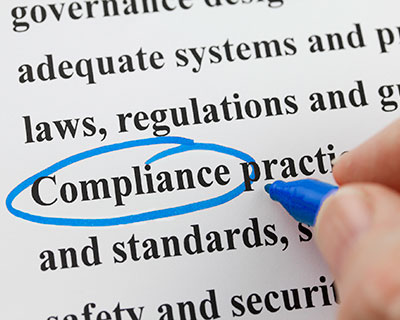As times get tougher and markets fail to deliver significant returns, there has been a sharp increase in investment scams. Unfortunately, it is usually the people who can least afford to lose money who fall prey to ruthless scammers.
The types of scam range from “passive income” business opportunities and automated forex trading portfolios to Bitcoin-related opportunities. While the “business” behind the scams may be different, they all tend to share certain attributes.
Four attributes of questionable investment opportunities
1. Just enough truth to be believable
Scammers tend to use concepts that people are vaguely familiar with and about which there has been publicity regarding the large profits made – such as forex trading, fintech or Bitcoin. However, as most people are not fully aware of how these things actually work, it’s easy for the fraudsters to use technical jargon to sound authentic, with investors lacking enough knowledge to ask pertinent questions.
TIP: If you want to invest in something you are unfamiliar with, do your research first; become an expert.
2. High returns and no risk
Scams all claim to be “low-risk” opportunities, yet offer virtually guaranteed higher-than-average returns. It is important to understand that returns are a function of risk.
A good example would be US Treasury bonds versus South African government bonds. The 10-year US Treasury bond is paying investors a yield of just over 2%, while the South African government bonds are trading at over 8%. This is because investors believe the risk of the US government defaulting on debt is far lower than that of the South African government. There’s also a greater probability that the rand will devalue relative to the dollar. Therefore, in order to convince investors to buy South African bonds rather than US bonds, they have to be paid a higher rate for the perceived risk.
In South Africa, the risk-free rate is based on interest paid by a bank deposit. Any rate higher than that assumes some form of risk. So if someone is offering you a 20% “low-risk” return, there is definitely risk being taken and, unfortunately, in most of these cases the risk is that you are going to lose all your money.
TIP: Remember that when it comes to the word “guarantee”, unless there is a bank guarantee, it’s just an empty promise.
3. Exclusivity – you’re an elite member
These scams are often run through word of mouth and testimonials of individuals who claim to have made a lot of money. In some cases, they may claim that you are part of a small group of people who have access to this amazing opportunity, or it may form part of a network, where you are encouraged, often through incentives, to sign up more members.
In these schemes the returns may not be coming from the investment itself, but rather from money taken from new investors in a classic pyramid structure.
TIP: In almost all the cases, the early investors receive “too-good-to-be-true” returns and their success encourages them to convince others to join “the club”.
4. They’re unregulated
You will find that the promoters or brokers are not registered with the Financial Services Board (FSB) or the South African Reserve Bank, and are not authorised financial services providers. Unfortunately, recent scams have shown that fraudsters are getting more astute as investors become better educated. They may use fraudulent FSB registration numbers, or use a licence to promote an unlicensed division of the business. If you want to confirm the authenticity of a licence number, contact the FSB directly to find out if the licence relates to the specific investment.
TIP: The initiators are not accountable to anybody and can disappear at any time. If you are making an investment, consider who you would be able to go to in order to get your money back.
So if you are being offered “an opportunity of a lifetime”, scrutinise it carefully.
Three things to consider before handing over your money:
- People lie for gain
Don’t believe everything you hear or read, particularly on social media. Testimonials can be invented or paid for. If something sounds far-fetched, it probably is.
- If you don’t understand, it’s not because you’re stupid
Warren Buffet once said that he does not invest in anything he doesn’t understand. If you don’t understand how the scheme makes money, it’s probably because there is nothing to understand. Keep asking questions and if the answers sound vague or you are put under pressure to invest, walk away.
- Don’t believe in get-rich-quick miracles
While miracles may exist, they don’t exist in get-rich-quick schemes. The only people who will get rich are the people selling the scheme. Unfortunately, in many cases, fraudsters use religion and prayer to convince people of their honesty. Just because someone can quote the Bible doesn’t mean they live by its values.
Share this article:
Linked In | Facebook | Twitter | Email
|












